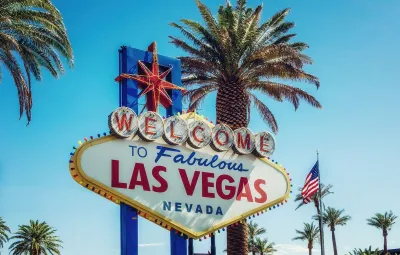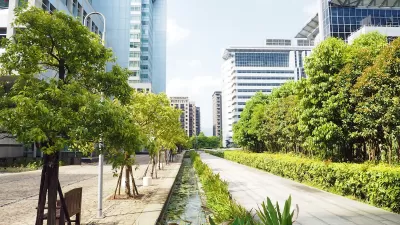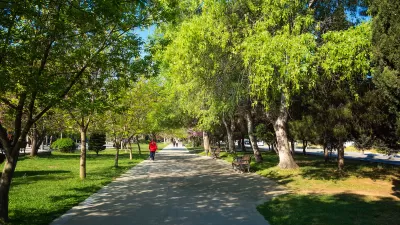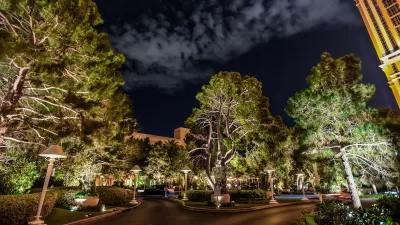Nevada Plants, a Las Vegas-based nonprofit, is combating the city’s extreme urban heat by giving away trees to residents in underserved neighborhoods, promoting shade, sustainability, and community health.

Facing a severe lack of tree canopy in parts of Las Vegas — some with as little as 3 percent coverage — local nonprofit Nevada Plants is tackling the urban heat crisis by giving away trees to residents most vulnerable to heat stress. Founded in 2021 by former Henderson urban forester Lisa Ortega, the organization focuses on residential properties and schools, recognizing these as overlooked spaces in the broader push for greener cities. The nonprofit was galvanized by the release of urban heat island and food desert maps, which underscored the urgent need for local action.
Since its founding, Nevada Plants has distributed over 1,700 trees across the region, carefully selecting varieties suited for local conditions — including fruit, nut, and shade trees. Ortega and her collaborators, such as Paul Noe from Star Nursery, work to ensure trees are healthy and appropriate for each site, while emphasizing that planting is just the first step. The group also offers tree care education and performs regular checkups on the trees it distributes, helping foster long-term success and sustainability.
With heat-related challenges intensifying—especially for low-income communities—Nevada Plants’ work is more vital than ever. Ortega sees trees not just as a cooling solution, but as essential air filters and a symbol of investment in future generations. Through tree giveaways, education, and ongoing support, Nevada Plants continues to grow its impact, with more events planned this Earth Month to support healthier, greener neighborhoods in Southern Nevada.
FULL STORY: Sustainability Heroes: How this Las Vegas-based nonprofit tackles urban heat with tree giveaways

Study: Maui’s Plan to Convert Vacation Rentals to Long-Term Housing Could Cause Nearly $1 Billion Economic Loss
The plan would reduce visitor accommodation by 25,% resulting in 1,900 jobs lost.

North Texas Transit Leaders Tout Benefits of TOD for Growing Region
At a summit focused on transit-oriented development, policymakers discussed how North Texas’ expanded light rail system can serve as a tool for economic growth.

Why Should We Subsidize Public Transportation?
Many public transit agencies face financial stress due to rising costs, declining fare revenue, and declining subsidies. Transit advocates must provide a strong business case for increasing public transit funding.

How to Make US Trains Faster
Changes to boarding platforms and a switch to electric trains could improve U.S. passenger rail service without the added cost of high-speed rail.

Columbia’s Revitalized ‘Loop’ Is a Hub for Local Entrepreneurs
A focus on small businesses is helping a commercial corridor in Columbia, Missouri thrive.

Invasive Insect Threatens Minnesota’s Ash Forests
The Emerald Ash Borer is a rapidly spreading invasive pest threatening Minnesota’s ash trees, and homeowners are encouraged to plant diverse replacement species, avoid moving ash firewood, and monitor for signs of infestation.
Urban Design for Planners 1: Software Tools
This six-course series explores essential urban design concepts using open source software and equips planners with the tools they need to participate fully in the urban design process.
Planning for Universal Design
Learn the tools for implementing Universal Design in planning regulations.
City of Santa Clarita
Ascent Environmental
Institute for Housing and Urban Development Studies (IHS)
City of Grandview
Harvard GSD Executive Education
Toledo-Lucas County Plan Commissions
Salt Lake City
NYU Wagner Graduate School of Public Service





























